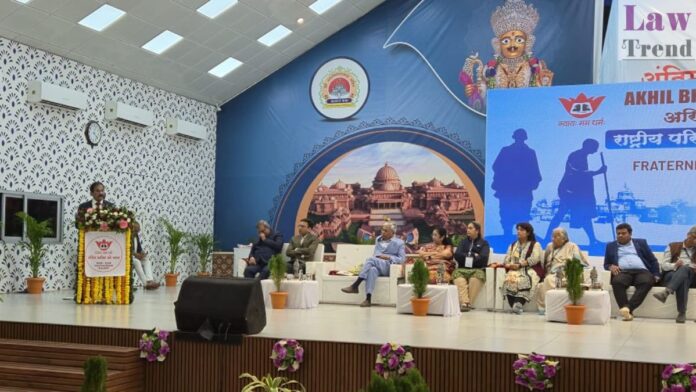India is uniquely positioned to influence global governance approaches in diverse societies, stated Justice Prashant Kumar Mishra of the Supreme Court during his keynote address at the National Council Meeting of the Akhil Bharatiya Adhivakta Parishad in Gujarat. The meeting’s theme was ‘Fraternity — Spirit of the Constitution’, and it also featured Justice Sameer Dave of the Gujarat High Court.
Justice Mishra discussed the Supreme Court’s pivotal role in upholding the constitutional principle of fraternity amidst growing global challenges like divisive identity politics and the misuse of digital technology. He noted that India’s constitutional framework for managing diversity is being closely watched by countries around the world, suggesting that India’s successful practices could serve as a model for other multicultural societies.
In his speech, Justice Mishra explained that fraternity within constitutional jurisprudence is not static but evolves to meet societal needs and judicial interpretations. It ties closely with justice, liberty, and equality, emphasizing the judiciary’s crucial role in ensuring that fraternity becomes a lived reality across the nation.
He identified significant challenges to fraternity, such as the rise of divisive rhetoric and the anonymity provided by digital platforms which often lead to hate speech and misinformation. To combat these issues, Justice Mishra called for a collective responsibility to promote peace, unity, and a just society. He emphasized that the legal framework should not only protect rights but also promote social cohesion and address systemic inequalities.
Justice Mishra underscored the special responsibility of the legal fraternity in upholding and promoting fraternity. He encouraged the judiciary to adopt a proactive stance by prioritizing mediation and reconciliation, making judgments accessible, and ensuring court procedures reflect fraternal values.
Furthermore, he highlighted the role of educational institutions, civil society, and the media in fostering fraternity by embedding empathy, solidarity, and constitutional values in their teachings to inspire a community-oriented future generation.
Concluding his address, Justice Mishra reviewed several Supreme Court judgments that have underscored the importance of fraternity in enhancing individual dignity and national unity, marking it as the cornerstone of India’s constitutional ethos.




